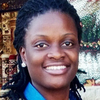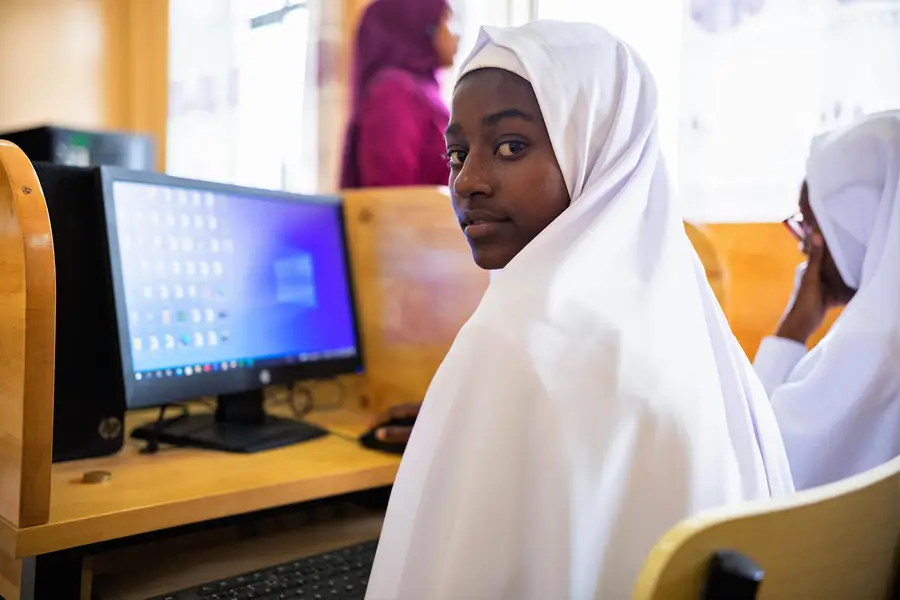Expert Interview: Exploring Global Careers in Clean Energy

Maria Namale
Utility Strengthening Lead, Power Africa Empower East and Central Africa Project

Photo Credit: Power Africa East Africa Energy Program
The energy sector is a dynamic space for new jobs and opportunities, especially as more economies transition to clean energy. It remains a male-dominated field, with only 16% of jobs in the sector filled by women. Despite this, women are making inroads and leading in exciting ways. We spoke with Caroline Toroitich and Maria Namale about their careers in the energy sector and what advice they would have for young people starting in the field.
Caroline: I initially worked in water, sanitation and hygiene and governance, where I witnessed the transformative power of behavior change. This motivated me to make a change and bring this experience to the energy sector. I started with advisory work in a biogas program in Kenya then moved into solar, where I was part of the pioneering group that helped build last mile distribution for solar home systems companies. I also worked on a results-based program that provided incentives for cookstoves based on efficiency and emissions, which encouraged companies to produce and distribute cleaner stoves for the Kenya market.
For the last five years, I have worked at the regional level managing large grant and technical assistance programs in the distributed renewable energy sector and am now at RTI, where I work as a senior technical advisor on the Power Africa Empower East and Central Africa (EECA) project to spread what we have learned and achieved.
Maria: I’m an electrical engineer by training and I joined an oil and gas company as a drilling engineer right out of college. I worked in the oil and gas sector for the better part of three years with stints in Uganda, South Africa, Tanzania, the United Arab Emirates, and the U.S. During the sector’s slump in 2016, companies laid off staff and I was one of them. I went back to Uganda and made the choice to move out of the oil and gas sector, which had stalled even in Uganda, and into the renewable energy sector. It was a natural switch – one sector was going up while the other was going down.
I worked with a renewable energy company that provided turnkey services, particularly for solar projects and products. One of my most notable assignments was leading design and installation of the power backup system for the Uganda Heart Institute. I left that company when an opportunity arose with the Rural Electrification Agency (REA) as a project engineer to manage the construction of electricity distribution lines to expand “last mile” grid connections, primarily in rural Uganda. Since leaving REA, I have worked on a series of Power Africa projects, first as a project engineer; then as access director, where I led on- and off-grid teams in designing and implementing programs to increase connections; then as a senior transmission and distribution engineer; and now as the utility strengthening and on-grid connections lead for the Power Africa EECA Project.
Maria: In the energy sector, there’s a trend toward not picking the women in the room to speak. People are usually addressing men in the room and gearing things toward their opinions. This has been less of a problem for me, personally, because I tend to speak up when I need to speak up. But it discourages women from joining the field and, for those who have joined, it curtails their progression. I know many women in my college classes who, when they joined the workforce, chose to change careers to industries like investment banking, audit, and finance.
In Uganda, government utilities and agencies are generally trying to employ more women and get more women into the sciences. It’s an important time for us as women in energy: Uganda has had female ministers of energy since 2011, the current permanent secretary is a woman, and the head of the regulatory authority is a woman. Women are leading agencies and ministries, and these institutions are thriving under their tutelage. They’re showing that women can lead the sector and do it well. Even so, more can be done to ensure that the women and girls who have qualified for jobs in the sector can thrive in their chosen careers.
Caroline: I’ve learned that relationships are particularly important: How you approach a stakeholder matters and influences if they’ll trust what you say and offer. It’s about what you say and how you say it – to spark adoption and behavior change, communication matters. Are you trying to solve their pain points or telling them what to do? How do we work together to solve your problem? You need to be solutions-oriented and focus on achieving shared results. You also need to craft your message in a way that generates buy-in and collaborative support.
Caroline: Don’t be afraid to work in the sector even if you don’t have a technical background. Identify a niche and what you’re able to bring to the sector and master that. Then be able to package yourself as bringing value to people. This requires keeping abreast of developments in the sector, learning and unlearning, and networking with peers.
Maria: Start, speak up, read. You can’t stop reading. One of my mentors in the field told me this and it has proven true over time. As engineers and technical people, we get to a certain point where we think we know everything, and we shy away from reading. But you need to know more than just the technical: There’s financial, economic, and political aspects around energy projects that you’ll only know if you read. Some of the solutions we’re looking for have already been found in other countries too, so when you read you have more of that knowledge and can help.
Caroline: To me, inclusivity means first understanding who has been left behind. Only by understanding who they are, and the source(s) of their exclusion, can we then create appropriate strategies for including them. Many times, we assume women and youth are not included, but do we understand them deeply enough to know how to include them? The way we are thinking and what we are proposing may not resonate with what they want unless we fully understand their context and how to address systemic barriers to inclusivity.
Maria: Inclusivity is a mindset for all of us: we need to listen to each other and know that everybody has something to say and that, whatever it is, it could be helpful. We need to learn to listen to each other, not just hear but listen and understand what each other is saying.
Learn more about RTI’s Energy for Development portfolio
Learn more about the Power Africa Empower East and Central Africa Project